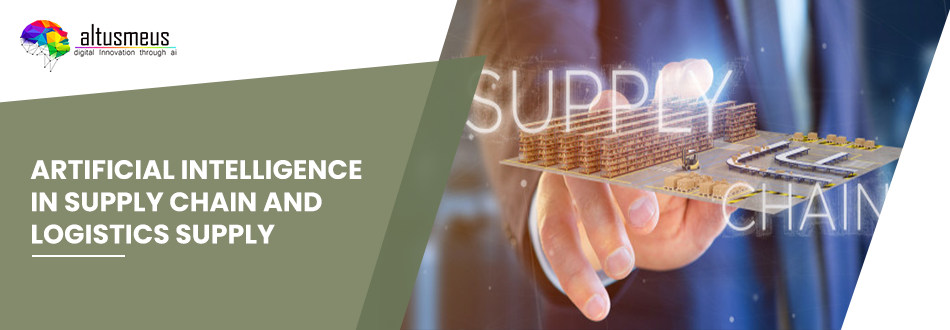Once considered as a concept that only sci-fi films could produce, AI (Artificial Intelligence) has become a topic of the mainstream and every day. Everything from social media to self-driving cars is being determined by how quickly technology can instruct machines to work like humans, or possibly even surpass them in capabilities. The potential of Artificial Intelligence enhancing business enterprises and strategies has not merely sparked the interest of humans and businesses but has also initiated rapid implementation.
AI can create order out of chaos. Lots of organizations have already benefited from Artificial Intelligence investments. AI is powering numerous applications and digital products and stands to benefit industries, including supply chain and logistics. According to the State of Artificial Intelligence for Enterprises, Supply Chain and Logistics is one of the top domains where companies are driving revenue from Artificial Intelligence.
Trends Accelerating the Use of Artificial Intelligence in Supply Chain and Logistics
Many companies are focusing on collecting and analyzing data to improve their supply chain and logistics space. While data is certainly important, the focus should also be on taking advantage of the technological advances that are making AI more accessible and capable. After all, it is not the amount of data a company has but the unique ways in which it is analyzed that will determine the success of the company in the AI era. There is a wide range of significant factors driving the AI trend, like computer power and speed, big data, and algorithmic advancements.
Computing Power and Speed
Modern computing is fundamentally based on artificial intelligence, which is the ability of computers to perform tasks that typically require human intelligence. This is the reason why computers can now use voice recognition to recognize and transcribe speech, recognize images and carry out search processes and play games. The field of artificial intelligence is based on the ability of computers to process information and use it to make decisions. With the exponential growth of processing power and the associated improvements in efficiency, AI systems are now able to perform cognitive tasks that the average person might not expect a computer to be able to do.
Big Data
The Supply Chain and Logistics industry is undergoing a revolution thanks to big data and analytics. By crunching the mountains of data generated by tracking every part of the supply chain, companies can predict customer behavior with great accuracy, anticipate risks and prevent problems. AI and machine learning algorithms crunch big data faster than humans can, helping logistics companies speed their response times and improve their bottom line.
Algorithmic Advancements
Algorithms help to solve problems, make forecasts, recognize patterns, and perform complex data analysis. They can analyze massive amounts of data that no human could process alone and can find correlations that we would have missed. They can also be used to detect patterns and trends in nature.
Prepare for the Future
The future is unpredictable. There are only a few things that we know for sure, the sun will rise in the east every day, water will freeze at 32 degrees Fahrenheit, and technology will continue to become more and more advanced.
With the ever-increasing pace of change, companies have to be very careful about how they prepare for the future. AI could be a deciding factor in a lot of industries, determining supply chain superiority, compelling customer service excellence, and constantly enhancing operational efficiency. Supply chain and logistics space enterprises should pay close consideration as more AI-enhanced solutions come to the fore.





